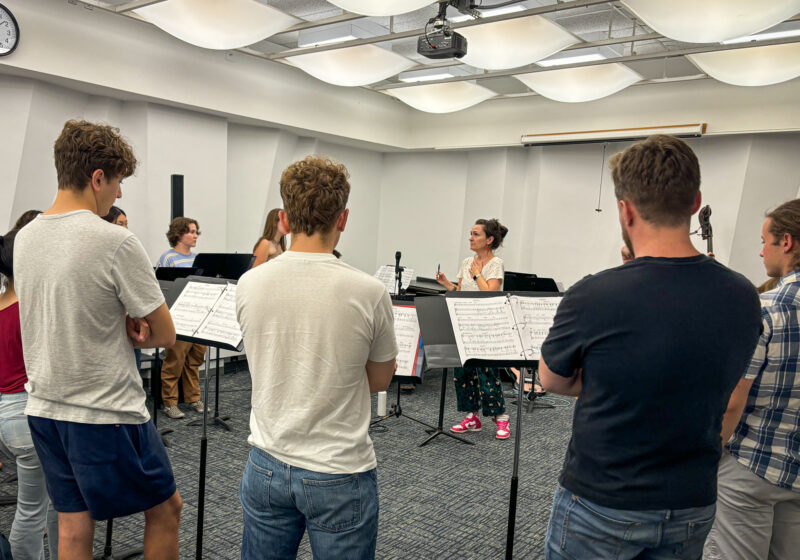We?ve all heard the hype recently.
We?ve been hit with books about it. We?ve even seen pregnant women with two sets of headphones ? one set for their own ears and another pressed to their stomachs.The message has been broadcast across America.
Listening to classical music, specifically Mozart, makes us smarter.Not only are there nine books on the subject, but there are CDs to further stress the point.
Unfortunately, that trademarked point ? that classical music has the power to up our intelligence ? has made millions without really ever having been proven.
The controversy behind the idea that listening to classical music raises our IQs began in 1993 after two scientists, Francis Raucher and Gordon Shaw, published a modest article that contained the results of an experiment.
Their experiment involved two groups of students at the University of California at Irvine ? one group out of two listened to a ?relaxation tape? consisting of a composition of Mozart.
The students that listened to the Mozart tape scored nine points higher when they tested on the Stanford-Binet Scale of Intelligence. However, the increase in their IQs only lasted for ten minutes.
The study itself did not cause any shock waves across the scientific community.
It was Don Campbell?s gross misinterpretation of the results that started the ?Mozart Effect? theory, which grew into a multi-million dollar empire.
Campbell, author of numerous books on the ?Mozart Effect,? claims that listening to Mozart every day not only raises our IQs, but can also cure cancer and take care of that pesky cold.
Sadly, Campbell has taken a noble idea ? sharing the beauty of music ? and has exploited and commercialized it. His many critics agree that his claims are completely invalid. They believe that Campbell is making money off lies.
However, many also agree that Campbell has done some good. His myths have launched a string of studies testing music?s effect on the brain.
For a long time, scientists have thought that exposure to classical music increases spatial-temporal reasoning.Rauscher and Shaw?s first study suggested a temporary increase.
A recent study involving rats also supported this theory.Rats who listened to classical music as opposed to silence or pop music ran a given maze faster.
However, a study done at Appalachian State University in North Carolina showed that 125 students who listened to classical music actually did worse than non-listeners on an IQ test.
One large study being conducted now has the most potential for accuracy.It is suggesting that children who study music experience long lasting benefits to their temporal lobes.
So, does mere listening make us smarter?While some studies point to yes, many more lean towards no.
It may be a very long time before any substantial and valid evidence is gathered.
What does that mean for the future of music? Nothing.
Most likely, a majority of the people out there who turn up the volume on a recording of Beethoven aren?t doing so because they want to boost their performance in physics.
No, we don?t love music because of its implications for increased intelligence. We love it because it exhilirates us, terrifies us and crushes us with sorrow.We love it because it makes us human.





